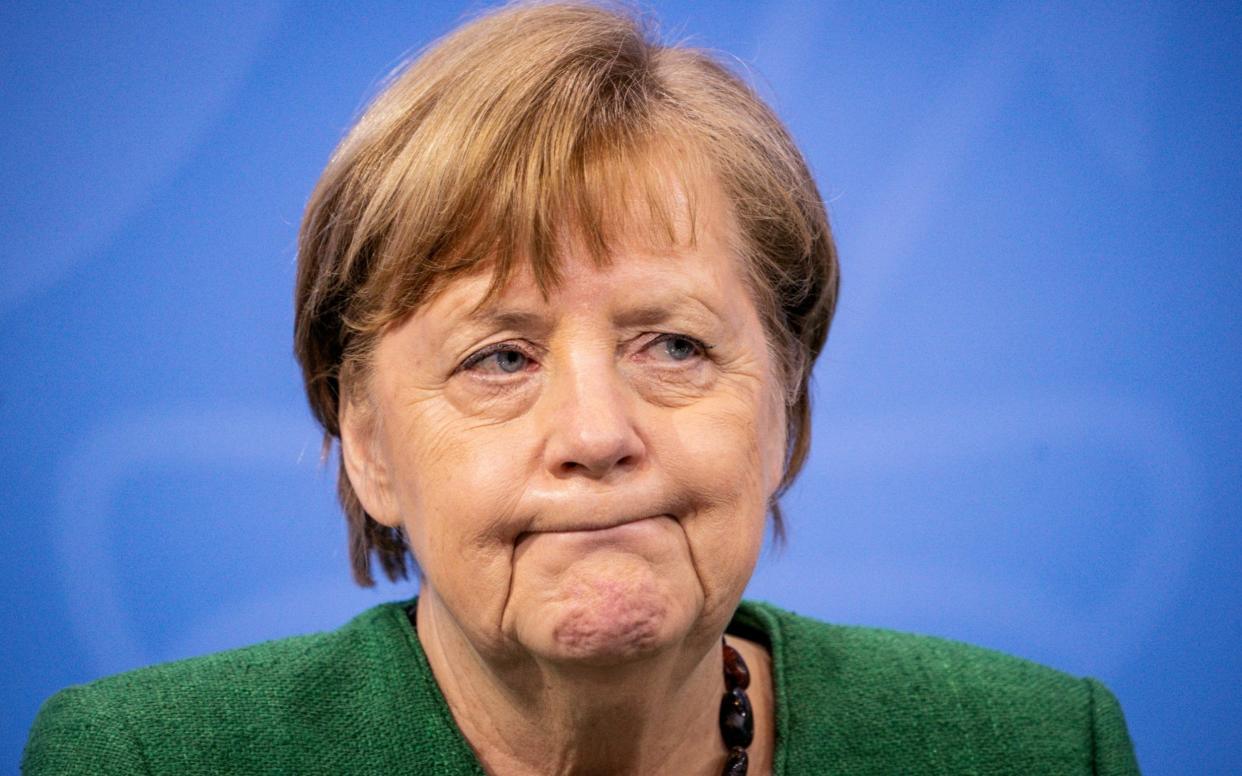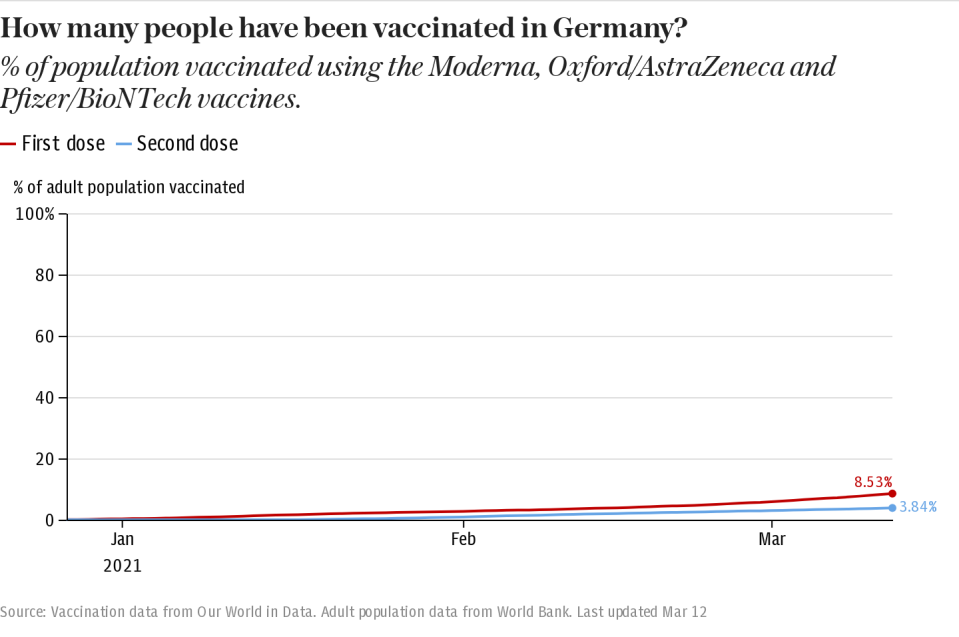Angela Merkel says 'this is my mistake' as she U-turns on plans to shut country over Easter

- Oops!Something went wrong.Please try again later.
Angela Merkel ditched controversial plans to introduce a strict lockdown over the Easter holidays, taking personal responsibility for the "mistake".
"The idea of an Easter shutdown was created with the best of intentions," she said, but added that the plan had been hasty and could not be implemented in such a short time.
"This mistake is my mistake alone," she said.
In a sign of how chaotic the country’s response to the pandemic has become, Ms Merkel was forced to U-turn on a deal she forced through at talks with regional leaders on Monday night.
The planned shutdown was met with public anger and a backbench rebellion in Mrs Merkel’s own Christian Democrat party (CDU).
Under the plans, all shops and businesses would have closed from Maundy Thursday to Easter Monday, and people would have been urged to remain at home.
Supermarkets and groceries would have been permitted to open for one day on Saturday so people could stock up on provisions.

Churches were urged to cancel Easter services, the Jewish community was requested not to gather to mark Passover, and Muslims were asked to cancel Friday prayers.
Mrs Merkel forced the plans through in the early hours of Tuesday morning after storming out of 12-hour talks with regional leaders, accusing them of not taking the threat from new virus variants seriously enough.
The regional leaders had earlier rejected her proposals for night-time curfews in hard-hit areas.
But the Easter shutdown plans met with immediate resistance. The German Retail Association warned they would drive up infections by forcing everyone to shop for food on the same day, and epidemiologists said the break was too short to have any lasting effect on infections,
There were angry recriminations from backbench MPs at meetings of Mrs Merkel’s Christian Democrat party (CDU) and her coalition partners on Tuesday.
One CDU backbencher, Axel Müller, said he was no longer prepared to support the government in a confidence vote.
“We are about to ruin our economy and culture,” said Tino Sorge, another MP, while a third, Albert Weiler, described the plans as a “declaration of surrender” to the virus.

Even senior ministers joined in the criticism. Horst Seehofer, the interior minister, pointedly announced that his ministry did not support the call to cancel Easter services.
But Mrs Merkel’s change of course may have been prompted by concern she is losing the German public as much as any party rebellion.
A new poll on Wednesday found 65 per cent of Germans now believe their government has lost control of the pandemic.
The CDU is in free fall in the polls. Its support was just 26 per cent in a new survey released on Wednesday, down from 37 per cent just seven weeks ago.
Although it is still clinging on to first place, its support is now low enough there is a very real prospect that it could lose the chancellery in September’s elections.
It was not immediately clear whether Wednesday’s U-turn applies to the call to cancel religious services.
Other measures agreed at Monday night’s talks will remain in place, including extending the general German lockdown until April 18, and a limit on social gatherings of five people from two households, both indoors and out. There is no outright travel ban, but hotels and holiday apartments are only open for business travellers.

